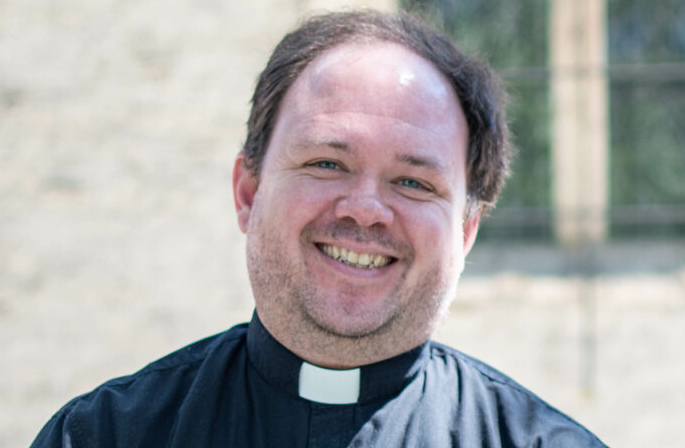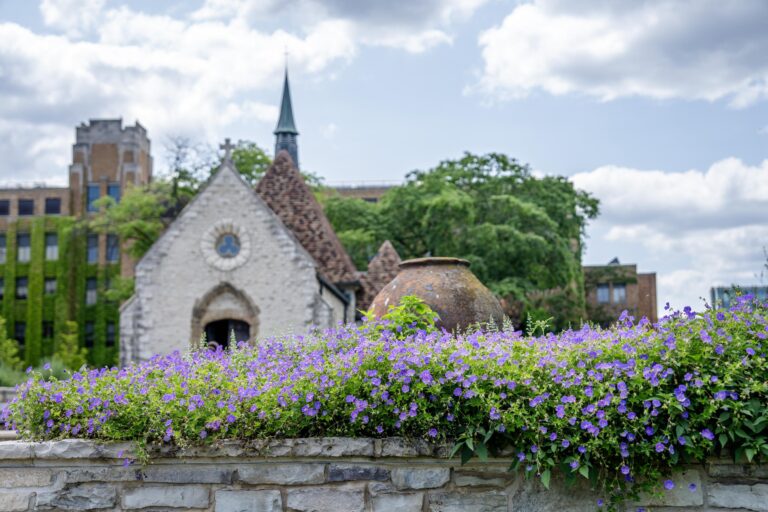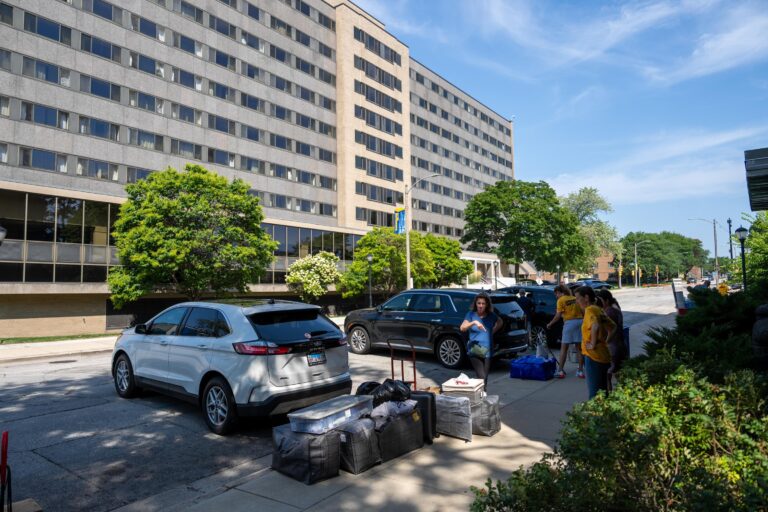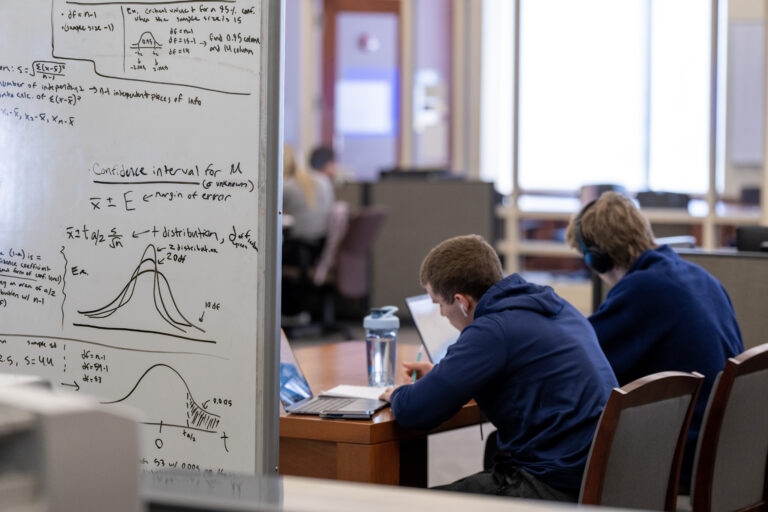Graduated from the university in 2003
By Alex Nemec, marketing communication specialist
Rev. Nathaniel Romano, S.J. is rejoining Marquette’s campus community after a nearly 20 years hiatus as the University’s new Assistant Director of Liturgical Programs.
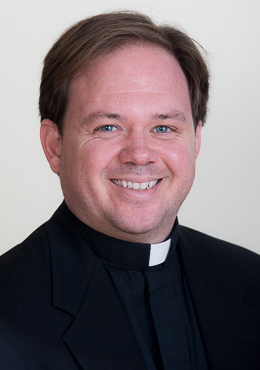
Romano is originally from southern California and after graduating from Marquette in 2003, went to the University of Wisconsin-Madison to pursue is law degree.
Most recently, Father Romano was a lecturer and provided pastoral services to students at Boston College in Massachusetts.
Here in a Q&A, Father Romano highlights what makes Marquette special and why he was thrilled to have been sent to minister at Marquette by his Provincial.
What made you want to come back to Milwaukee and rejoin the Marquette community?
Part of it is as Jesuits we go where we are sent. We are men of obedience and my provincial asked me to consider Marquette because there was a real need. I love being a Jesuit, I love living my vows, I love that sort of energy. I was particularly excited to be sent back to Marquette as it holds a special place in my heart. I loved my time at Marquette and had a lot of great memories. A lot of the places on campus feel like home in a way. Part of it too is the Jesuit community, we are privileged to have so many guys on campus for 10, 20, 30 years. As a Jesuit I go where I am sent, but also I’m excited to be here because of how important has been to me and how I was treated, cared for and loved here. The opportunity to be able to do that for our students now is a great grace.
What do you envision your role is on campus?
Liturgy is the work of the people in collaboration with the work of God. The reason we have liturgy is to have this privileged space where the living God encounters us. I want to create opportunities for our students to have that experience. We traditionally talk about liturgy as the source and the summit of our lives. Liturgy is the font from which grace flows and it is the summit toward which we ascend to have that experience. I want to create that opportunity to have an experience of a God who loves them and cares for them. And particularly for our non-Christian students, I want to provide them their space and resources to have the experience their belief, religion and faith calls them to. We host Mass and the sacraments; those are important and I want to do those. But also saying to our students of other faiths, “What resources do you need to ritualize those moments that give your life meaning?”
How would you define success in this role?
I would count success is if at the end of the semester or the end of the year, if a single student has had an encounter with the living God who loves them, that alone is enough. We have begun to create those structures and spaces for students to have that encounter and where they feel safe to have that encounter.
So many of our students lives are empirical and evaluative. Class rank, GPA, did you get that job, etc. To give a space where a student can be present, cared for and loved regardless of any of that, without have to worry about any of that.
What sort of sentiments or practices did you learn at previous career stops that could have a positive impact here on campus?
The biggest thing is listening to the students and people around me. I know what worked for me when I was a student here 20 years ago; I know what prayers, homilies and music I want to hear — which would be great if I was talking about myself. But what do students need? Every student I’ve seen and talked to I’ve ask what we’re missing, what we’re doing well and what should I know? If the goal is to facilitate students’ encounter with God, I need to start with where students are right now.
What makes Marquette special or unique versus other universities?
I’ve been associated as a student, faculty or a staff member at half a dozen universities. What makes Marquette special is we are committed to a mission. Compared to UW-Madison, where I went to law school, where there’s a great focus on using your law degree to make the world a better place. But it is agnostic on what a better place is. The school wants to give you tools, but it doesn’t have the theology to support it. At Marquette, we have a sense of what it means to be human and that comes from our tradition. Yes, obviously students should discover how that works for themselves, but we have this tradition of not just excellence, but excellence as a part of this massive, worldwide, half a millennia long network we call Jesuit education.
Fast Facts
Favorite movie: Any Star Wars movie
Favorite book: The Sparrow by Mary Doria Russell
Favorite spot on campus: The patio at the E.J. O’Brien Jesuit Residence
Favorite place to study during undergrad: Any quiet corner in the library
Favorite food: Pepperoni pizza
